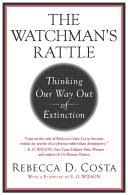
Memes
 Riddle of the Lily Pads
Riddle of the Lily Pads
There is great truth in the oft-quoted riddle of the lily pads. A pond (a lake, an ocean, all apply) starts with a single lily pad. Each pad doubles per day; the pond will be full in thirty days. When is the pond only half full? On the twenty-ninth day. After the next day, the thirtieth, further growth is so fast it will, if somehow continued, overwhelm the pond and everything in it in a matter of hours. A lesson in exponential growth.
 We Are Against Everything, but For Nothing
We Are Against Everything, but For Nothing
People who publicly protest are not only passionate and well meaning; they are also generally well informed. I found it incongruous that these same people advocated no real solutions. They appeared passionate about what they were against, but when it came time to propose an alternative course of action, they seemed befuddled.
It occurred to me I was witnessing some new form of gridlock: If we are against the war and also simultaneously against every withdrawa plan, how do we move forward? T...For every proposal, it seems like there are twenty objections. Is this human nature? It does make us easy to manipulate.
 How the Brain Handles Novelty and Routine
How the Brain Handles Novelty and Routine
When faced with complexity, our first response is to retreat to the familiar, even if the familiar means failing. But in addition to reverting to what is familiar, we also have another reaction: fear.
We are hardwired to perceive real change as threatening, so we instinctively reject it. Sure, a few of us have the courage and tenacity to attack the complex, the unknown, and the risky. After all, this is hiow new discoveries are made.
But many more of us do not.
Why not?
It turns out t...The frontal cortex is wired to handle novelty and the basal ganglia wired to handle routine, when we live in a world of constant novelty, is our gut reaction to oppose everything?
 Encouraging Insight
Encouraging Insight
When we encourage the evolution of insight, we attack the root cause of opposition. The more we develop our cognitive capacity to manage greater complexity, the more we prevail over the compulsion to oversimplify our problems.
Schwartz put it this way: "The findings suggest that at a moment of insight, a complex set of new connections is being created. These connections have the potential to enhance our mentat resources and overcome the brains resistance to change."
Sounds simple. Just in...Insight requires a relaxed environment free of critical oppression.
 Today's Problems Are Too Complex for Individuals to Solve
Today's Problems Are Too Complex for Individuals to Solve
The human race has had a long and romantic tradition of crediting great breakthroughs to the tribulations of single individuals: Einstein, Archimedes, Benjamin Franklin, Van Gogh, da Vinci—the list is lon^g. Interestingly, every story about an epiphany is similar: An eclectic individual attempts to solve a complex problem that has stumped humankind for centuries, when suddenly he stumbles on an "aha!" moment. At first his revelation is rebuked by everyone, and then, over time, the inventor ...History is filled with the names of inventors who made great discoveries, but it took teams to invent the Internet, Cell Phone, and Semi-Conductor.
 Eating for a Healthy Brain
Eating for a Healthy Brain
So, the first priority for getting the highest brain j performance is to consume sufficient amounts of protein each day. Insights are cognitively taxing to the human brain, so it makes sense that fueling our neurotransmitters with high-octane fuel —protein —is essential for high-powered thinking.
Next come antioxidants from foods like blueberries, Matcha green tea, and walnuts, which stave off cognitive cell damage. We need healthy cells in order to burn new circuitry, and as we establ...Includes a list of foods associated with improved brain functions
 Novelty is Good for the Brain
Novelty is Good for the Brain
There is unanimous agreement among neuroscientists and psychologists that the human brain operates best when it is regularly subjected to new challenges. We have recently discovered that the brain benefits from a broad variety of problem-solving activities such as crossword puzzles and Sudoku. There also appear to be benefits when we mix these activities up: doing crosswords puzzles for a while and then switching over to Sudoku, and later, back again. The same goes for changing daily routines...The more the brain experiences novel situations, the more it grows new connections, soon it becomes good at growing new connections.
 Walking is Good for the Brain
Walking is Good for the Brain
Have you ever wondered why one of the most difficult things to teach a robot to do is to walk on two legs?
It turns out there's a reason. Apparently, the simple act of walking turns out not to be so simple after all.
Professor Florentin Worgotter of the University of Gottingen in Germany explains why teaching a robot to walk on bumpy terrains like cobblestones is so challenging: "Releasing the spring-like movement at the right moment in time—calculated in milliseconds—and to get the d...Walking rapidly on uneven surfaces exercise all areas of the brain and may explain why humans experienced such rapid brain growth once we became bipedal.




